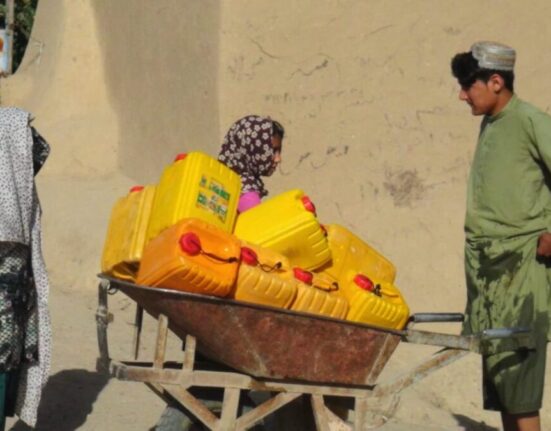Mohammad Hassan Akhund, the Taliban’s Chief Minister, has reportedly made his first international trip since the Taliban’s takeover of Afghanistan three years ago, traveling to the United Arab Emirates (UAE). The Taliban stated that the purpose of Akhund’s visit was for medical treatment.
Akhund, who remains under a United Nations travel ban, was photographed meeting with UAE President Mohammed bin Zayed Al Nahyan at a hospital in Abu Dhabi, according to UAE media. The visit raised questions given the travel restrictions imposed on Akhund by the UN.
The photo released by Akhund’s office showed Anas Haqqani, a senior member of the Haqqani Network with no official government position, accompanying him. However, Haqqani’s image was cropped out in both the Taliban’s press release and the Emirates News Agency’s report.
The UN’s sanctions committee has not provided details on whether Akhund received a special exemption to travel or if his name was temporarily removed from the blacklist.
Akhund’s visit comes a month and a half after another high-level Taliban delegation, including Sirajuddin Haqqani, the acting Minister of Interior, Abdul Haq Wasiq, the head of intelligence, and Anas Haqqani, visited Abu Dhabi and met with the UAE President. The visit also highlights the ongoing competition between the UAE and Qatar for influence over the Taliban, with the UAE reportedly securing travel exemptions for Taliban officials from the United States and the United Nations to pursue its own strategic interests in Afghanistan.
Akhund’s public appearances have been rare in recent months. According to his office’s social media updates, he has only been seen publicly once in the last six months, during Eid al-Adha prayers. He has led cabinet meetings and issued statements but has not been prominent in many of the Taliban’s key political and administrative events. Notably, Akhund was absent from the ceremony marking the third anniversary of the Taliban’s return to power, held at Bagram Air Force Base.
These developments suggest that Akhund may not play a central role in the day-to-day governance of the country, with much of the political and diplomatic work being handled by his deputies, particularly Abdul Kabir, the Deputy Chief Minister for Political Affairs.





